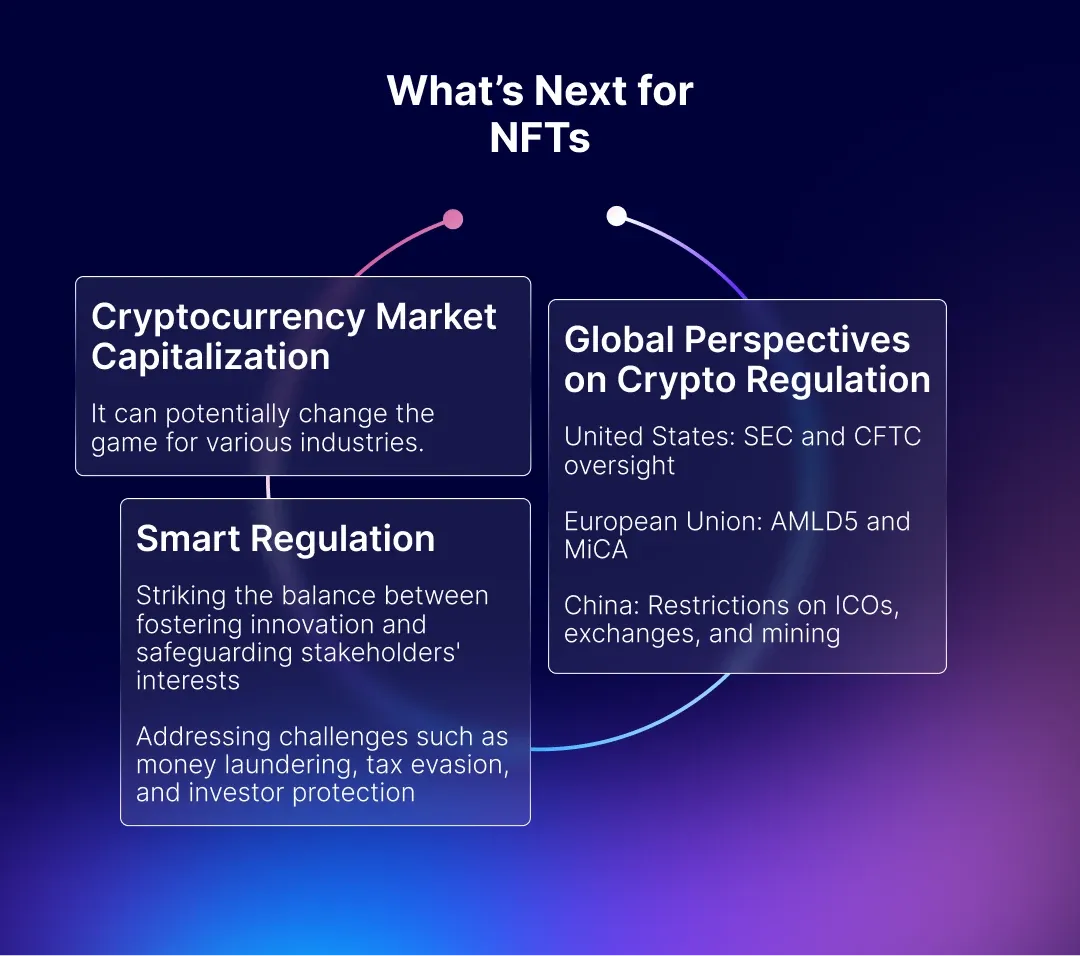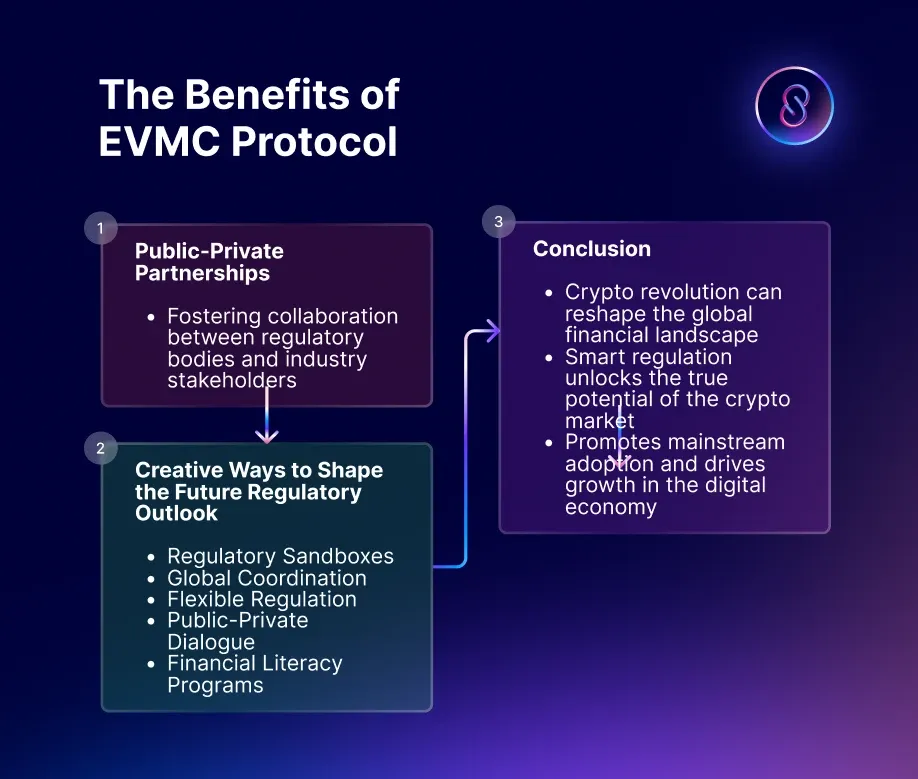Unleashing the Crypto Revolution: How Smart Regulation is Transforming the Digital Economy for All!
With the emergence of digital currencies like Bitcoin, Ethereum, and numerous altcoins, the world has witnessed a new era of financial innovation.

In recent years, the cryptocurrency landscape has experienced exponential growth, capturing the attention of investors, governments, and enthusiasts alike. With the emergence of digital currencies like Bitcoin, Ethereum, and numerous altcoins, the world has witnessed a new era of financial innovation. However, this rapid expansion has also exposed the need for smart regulation to ensure the protection of investors and the stability of the global economy. In this article, we'll explore how smart regulation is transforming the digital economy for all, unlocking the true potential of the crypto revolution.
A New Age of Financial Technology: Decentralization and Beyond

The cryptocurrency market has been making headlines, boasting a market capitalization of over $1 trillion. This remarkable growth is largely attributed to the decentralization aspect of blockchain technology, which offers transparency, security, and efficiency. As more people embrace digital assets, the necessity for effective regulation becomes increasingly evident. The challenge lies in striking the perfect balance between fostering innovation and safeguarding the interests of all stakeholders.
The Regulatory Conundrum: Finding the Sweet Spot
As the crypto market continues to evolve, regulators worldwide face the daunting task of establishing a robust framework that addresses the unique challenges posed by digital currencies. These include issues such as money laundering, tax evasion, and investor protection. Smart regulation is the key to finding the sweet spot where innovation thrives without compromising security.
Global Perspectives: A Kaleidoscope of Crypto Regulation
Different countries have adopted various approaches to regulating the crypto sphere. While some nations have imposed stringent restrictions, others have taken a more lenient approach in hopes of attracting innovative businesses. Let's take a look at some examples:
- United States: The U.S. Securities and Exchange Commission (SEC) and the Commodity Futures Trading Commission (CFTC) play vital roles in overseeing the crypto market. In recent years, the SEC has been focusing on Initial Coin Offerings (ICOs) and has deemed several tokens as securities, subject to federal securities laws.
- European Union: The EU has implemented the 5th Anti-Money Laundering Directive (AMLD5), which extends its regulatory reach to crypto exchanges and wallet providers. Additionally, the European Commission has proposed the Markets in Crypto-assets (MiCA) regulation, aiming to create a harmonized legal framework for digital assets across its member states.
- China: The Chinese government has taken a more restrictive stance, banning ICOs, crypto exchanges and, recently, cracking down on cryptocurrency mining operations.
Unleashing the Power of Collaboration: Public-Private Partnerships

As the crypto market matures, fostering collaboration between regulatory bodies and industry stakeholders is crucial in shaping a vibrant digital economy. Public-private partnerships can facilitate the exchange of knowledge and expertise, ensuring that regulators understand the intricacies of the crypto ecosystem and can draft effective policies.
Future Outlook: The Road to Mainstream Adoption
As regulators worldwide continue to develop comprehensive frameworks, the crypto landscape is poised to enter a new phase of maturity. Smart regulation can foster mainstream adoption, instilling confidence in digital assets and driving the growth of the crypto ecosystem.
Here are some creative ways that can shape the future regulatory outlook:
- Regulatory Sandboxes: Regulators can establish controlled environments, or "sandboxes," where fintech and crypto businesses can test innovative products and services without the usual regulatory constraints. This would allow regulators to better understand the technology, its risks, and its potential, while simultaneously enabling businesses to fine-tune their offerings before a full-scale launch.
- Global Coordination: The global nature of cryptocurrencies necessitates cross-border cooperation among regulatory bodies. By sharing best practices, ideas, and resources, regulators can develop a more coherent and effective approach to overseeing the crypto market, ultimately promoting stability and consumer protection.
- Flexible Regulation: To encourage innovation without stifling growth, regulators should consider adopting a flexible and adaptive approach to regulation. This could involve updating existing regulations to accommodate new technologies or developing bespoke regulatory frameworks specifically tailored to the unique challenges and opportunities posed by cryptocurrencies.
- Public-Private Dialogue: Engaging in continuous dialogue with industry stakeholders can ensure that regulators have a comprehensive understanding of the crypto ecosystem. This collaboration can help identify emerging trends, risks, and opportunities, enabling regulators to draft policies that are both effective and forward-looking.
- Financial Literacy Programs: Regulators can play a crucial role in promoting financial literacy by developing educational programs and resources targeted at both the general public and industry professionals. By fostering a well-informed crypto community, regulators can contribute to the overall health and stability of the digital economy.
These initiatives can pave the way for the mainstream adoption of cryptocurrencies, instilling confidence in digital assets and driving the growth of the crypto ecosystem. As smart regulation becomes more prevalent, the future of the digital economy looks promising, with cryptocurrencies taking their rightful place alongside traditional financial instruments.
Conclusion
The crypto revolution has the potential to reshape the global financial landscape, offering unprecedented opportunities for innovation and financial inclusion. Smart regulation is the linchpin that can unlock the true potential of this burgeoning market.

Connect with InfinitySwap
Bitfinity Wallet |AMM | Twitter | Website | Telegram | Discord | Github






Comments ()